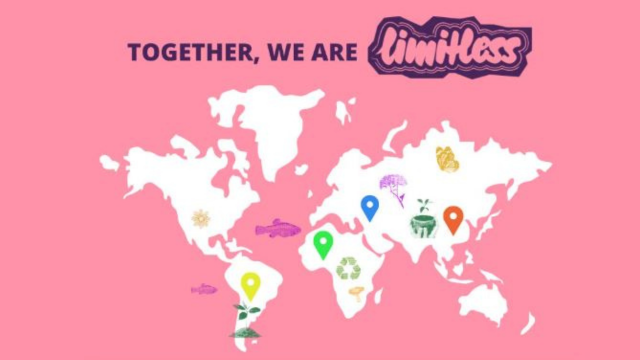-
QUALIFICATIONS
- For Linguists Worldwide
- For UK Public Services
- Preparation
- Policies & Regulation
-
MEMBERSHIP
- Join CIOL
- Professional Membership
- Affiliate Membership
- Chartered Linguist
- Already a member?
- Professional conduct
- Business & Corporate Partners
-
LANGUAGE ASSESSMENTS
- English
- All Other Languages
-
EVENTS & CPD
- Webinars & Events
- CIOL Conferences
- Networks
- CIOL Mentoring
-
NEWS & VOICES
- News & Voices
- CIOL eNews
- CIOL Awards
- The Linguist Magazine
- Jobs & Ads
-
RESOURCES
- For Translators & Interpreters
- For Universities & Students
- Standards & Norms
- CIOL & AI
- All Party Parliamentary Group
- In the UK
- UK Public Services
- Find-a-Linguist
The Importance of Having Languages in Common

When one chooses which language to learn, they will often choose it based on how many native speakers there are of that language across the globe. However, what one often fails to consider is how many people can speak the language as their second, third or even fourth.
By Emily Boaler
Languages as a network for communication
English is my native language, I then learned French from age 6, Spanish from age 14, then Italian from age 18. Despite learning Italian later, my Italian is just as strong as my French and Spanish, but I still class it as my fourth language. I have used Italian to speak to people from Romania, Albania, Croatia, Eritrea, Hungary and Germany.
Without being able to speak Italian I would not have been able to communicate with these people, as not everybody chooses English when choosing to learn a foreign language. Having a language in common allowed me to build some strong friendships with these people. When I first started studying in Italy, my landlord’s best friend was Eritrean and she really looked after me, invited me to her house for food and to watch films. Friendships like these helped me to quickly settle into my Italian life and were invaluable.

Sharing a common language
While working at Disneyland Paris, I didn’t speak French to only native French-speaking colleagues, but also with colleagues from Vietnam, Cape Verde, Lithuania, Morocco, Sweden and Germany. They didn’t speak English and I didn’t speak their native languages. There have been many times where languages in common have been very useful. I may not speak your language and you may not speak mine, but we may share a language, which allows us to break down language barriers and have allowed me to communicate with people that I wouldn’t have been able to communicate with otherwise. Disneyland Paris prides itself on its diverse workforce employing staff from over 120 different countries. To allow for the tight-knit happy working environment that Disney strives for means that having languages in common is essential.
Shared experience of speaking a foreign language
When you share a language in common there is also less pressure as you are both speaking a foreign language and can sometimes feel more at ease. Rather than trying to perfect every sentence, you see it as more of a communication tool. It’s not as daunting, especially when you’re getting used to speaking a foreign language. There are times when it’s good to practice a language with a non-native speaker. You will both also share the same love for the language, as you have both chosen to learn it off your own backs.
Learn languages and you won’t miss the train!
A few years back in Germany my train was cancelled. All the announcements and boards were in German. We weren’t expecting anything to be in English, but we were hoping it would be. Due to not knowing German this meant that we didn't know which train to catch instead nor where it was departing from. We asked a lady for help. She didn't understand English and said ‘Parlez-vous français?’ Fortunately, we could then communicate in French. She kindly provided us with information so we could catch another train. If we hadn't had spoken in French, we would have missed the train as it was departing within minutes. Times like these make me realise how vital languages in common are!

The advantages of speaking languages
They have allowed me to settle into places more quickly, have helped me build stronger relationships in the workplace, have helped me build friendships and have made things a lot less stressful when travelling abroad. It also raises the likelihood of you being able to communicate with somebody when needed.
Languages in common are underrated, and vital when it comes to breaking down language barriers and speaking to more people of other nationalities.

Emily Boaler is a Multilingual Technical Support Engineer at Oracle who graduated with a BA Hons in French, Spanish and Italian from Nottingham Trent University.
Views expressed on CIOL Voices are those of the writer and may not represent those of the wider membership or CIOL.
Filter by category
More
The Chartered Institute of Linguists (CIOL), Incorporated by Royal Charter, Registered in England and Wales Number RC 000808 and the IoL Educational Trust (IoLET), trading as CIOL Qualifications, Company limited by Guarantee, Registered in England and Wales Number 04297497 and Registered Charity Number 1090263. CIOL is a not-for-profit organisation.








